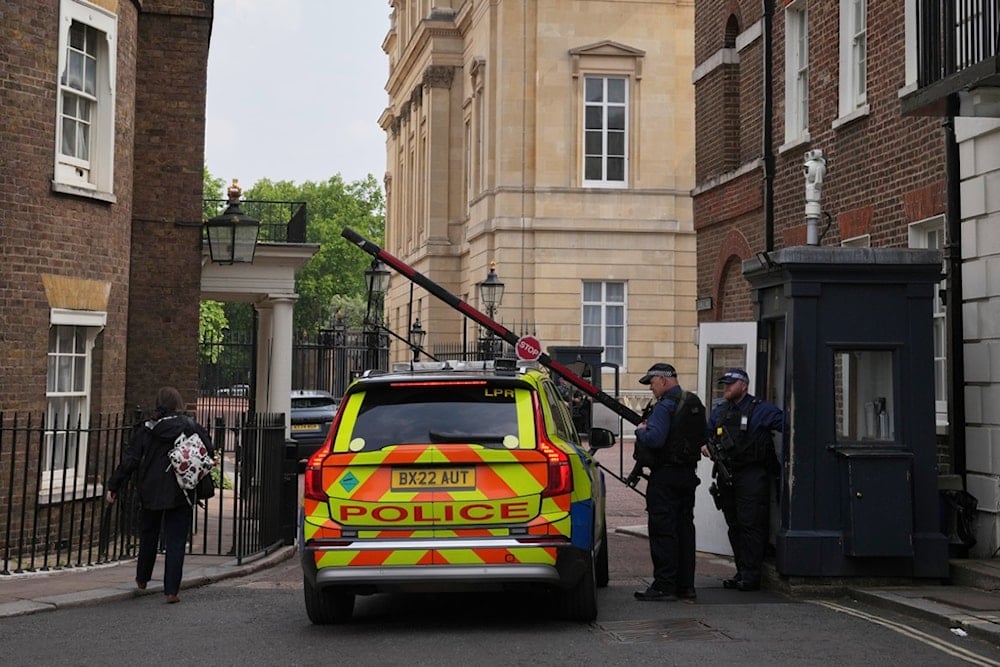Trump claims US-China trade deal finalized, awaits Xi's approval
The deal, according to Trump, aims to secure critical supply lines for the US, particularly rare earth elements and industrial magnets vital to sectors such as electric vehicles, defense, and telecommunications.
-

Police officers stand guard at the entrance of Lancaster House, where the trade talks between the US and China are taking place, in London, Monday, June 9, 2025. (AP Photo/Kin Cheung)
US President Donald Trump announced Wednesday that a new trade agreement with China has been finalized, pending final approval by him and Chinese President Xi Jinping.
"Our deal with China is done, subject to final approval with President Xi and me," Trump posted on Truth Social. "Full magnets, and any necessary rare earths, will be supplied, up front, by China. Likewise, we will provide to China what was agreed to, including Chinese students using our colleges and universities (which has always been good with me!). We are getting a total of 55% tariffs, China is getting 10%."
The deal, according to Trump, aims to secure critical supply lines for the US, particularly rare earth elements and industrial magnets vital to sectors such as electric vehicles, defense, and telecommunications. The commitment by Beijing to restore export licenses for these materials has been welcomed by major US manufacturers who had warned of production delays without renewed access.
Tariff truce
The agreement follows a series of high-level economic talks between the two nations. Initial discussions took place in Geneva on May 10–11, resulting in a temporary 90-day tariff truce that reduced reciprocal tariffs to 10%. However, due to Washington's ongoing 20% fentanyl-related tariff and an additional 25% legacy duty, the effective US tariff burden on Chinese imports remains at 55%.
The most recent round of negotiations occurred in London on June 9–10, where officials from both sides, led by Chinese Vice Premier He Lifeng and US Commerce Secretary Howard Lutnick, reached a framework deal to implement the Geneva terms. This includes China's commitment to restore exports of rare earths and magnets critical to American manufacturing sectors.
Speaking earlier on the Pod Force One podcast, Trump acknowledged the difficulty of reaching consensus with Beijing, stating, "China was very tough to deal with," and adding, "They are a little spoiled from having such great success against our negotiators."
The remarks contradict earlier statements from the Chinese Foreign Ministry, which has urged the US to abandon its approach of threats and pressure if it is serious about resuming trade dialogue.
Read more: US, China strike deal to ease export curbs, avoid tariff spike
Trade uncertainty
Despite the hardline rhetoric, the US president expressed a desire for deeper economic collaboration. "Adding to the China readout, President Xi and I are going to work closely together to open up China to American Trade. This would be a great WIN for both countries!!!" he wrote on Truth Social.
Analysts caution, however, that while the agreement may ease immediate tensions and restore key supply flows, broader issues, including technology export controls, enforcement mechanisms, and China's industrial policy, remain unresolved.
The deal's full impact will depend on formal signoff by both heads of state and the subsequent implementation of export licensing and tariff rollbacks.

 3 Min Read
3 Min Read










